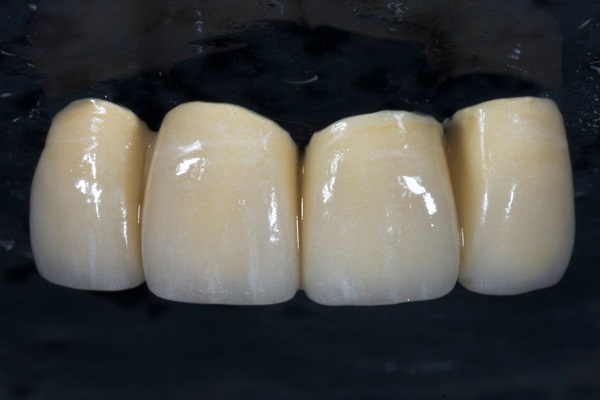How a Dental Bridge Can Improve Your Oral Health

A dental bridge works by filling up the gaps created by lost teeth. Dental implants or crowns support the pontic or prosthetic tooth from either side. Dental bridges provide many benefits, including improving one's ability to eat and communicate. They help protect the jawbone and stop the rest of the teeth from moving into the gap.
The benefits of dental bridges for oral health
Losing a tooth or teeth can be disconcerting. Patients might struggle with chewing and speech articulation. Dental bridges can improve oral health in the following ways:
Stop tooth shifting
The absence of a tooth might cause nearby teeth to move into the gap. As time passes, the jawbone weakens, causing nearby teeth to loosen and finally fall out. Placing a dental bridge across the gap might help keep the adjacent teeth in place. If the dental bridge is anchored on a dental implant, the bone will fuse with the implant to keep the teeth in place. Crowns will act as anchors, allowing bone to develop and cling to them.
Improved oral function
The teeth contribute to the jawbone’s structure and assist in the process of chewing food. Tooth movement due to tooth loss may cause one’s dentition to become crooked, making it difficult to eat and talk. A dental bridge restores the lost tooth and supports the jawbone, ensuring good bite alignment.
Better aesthetics
Having a missing tooth might make the smile seem less healthy, aligned, and consistent compared to having a full set of teeth. Changes in the smile may make individuals feel anxious or self-conscious. A dental bridge may improve the look of the smile by filling up the gap between neighboring teeth. The dentist will work with the patient to create the right dental restoration that gives the best results.
Preserve the jawbone
A dental bridge plays an important function in maintaining jawbone health by preventing it from deteriorating. If a tooth is missing, the jawbone may deteriorate over time, making the face seem older and increasing the likelihood of losing further teeth. The dental implant inside the jawbone provides the necessary stimulation to prevent resorption. This may delay or stop bone degeneration.
Avert further tooth loss
Once the teeth start moving around on the jaw, there is a risk of further tooth loss. Also, plaque and tartar tend to build up in those gaps. If patients fail to replace the tooth, they might be prone to gum disease, which tends to damage gum and bone tissues. This treatment may help protect the tooth's integrity and prevent further deterioration.
The bottom line
If you need a tooth replacement to protect your teeth or gums, a dental bridge may be a great option for you. A dental bridge is intended to be long-lasting and may stay in place for many years. The dentist will examine your dentition during your consultation and introduce you to potential options for replacing the lost teeth. The final dental bridge is customized to fit your mouth, making it indistinguishable from the rest of the teeth. To learn more, book an appointment with our dental office today.
Request an appointment here: https://www.mynewnandentist.com or call Perry Street Dental at (770) 400-9933 for an appointment in our Newnan office.
Check out what others are saying about our dental services on Yelp: Dental Bridges in Newnan, GA.
Related Posts
Dental crowns are a reliable and durable solution for restoring the appearance and function of damaged teeth. While dental crowns are designed to last years, proper care and maintenance are essential for extending their lifespan. Following practical steps and working closely with your dentist can protect your investment and enjoy a confident smile for years.Maintaining…
Dental veneers enhance the smile with a blend of beauty, efficiency, and durability. These thin shells bond to the front of teeth to correct chips, stains, gaps, and minor misalignment with precision. But like any dental treatment, there are some trade-offs to consider. Weighing the pros and cons of veneers can help patients decide whether…
Thinking about choosing implant-supported dentures to replace your missing teeth? This type of denture offers many benefits, which is why this denture choice has become so popular. However, properly caring for dentures supported by implants is necessary so they will last for many years.While there are many different types of denture choices to choose from,…
Getting approval for dental implants is the first step in the process. Anyone interested in dental implants must undergo a consultation, examination, and assessment to be a viable candidate for the surgical process. Since an implant is surgically inserted into the jawbone, the patient needs to have sufficient bone and be free of gum disease.…
